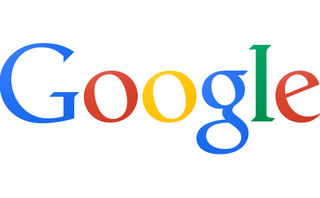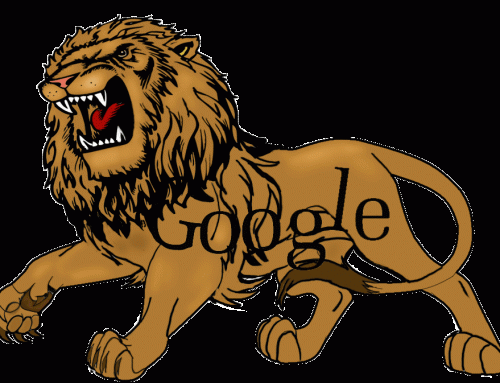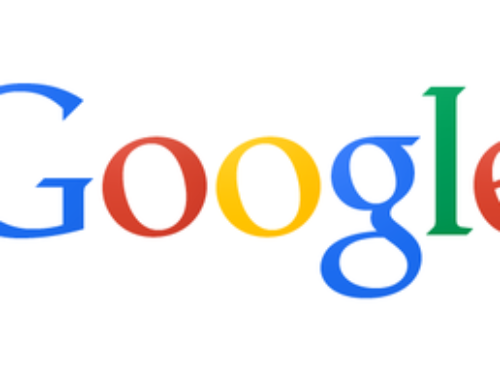Search engines – webmasters and search engine optimization (SEO) professionals follow their guidelines for the highest possible rankings on them; paid search marketers pay to be featured on them; and users turn to them when they’re searching for answers, information, or entertainment.
Search Engine Watch has been covering search engines since June 1997 and has watched the industry evolve to its current state. Over time, many search engines have come and gone, as users have spoken with their keyboards (and literally with their voices – thanks to voice search technology).
In recent years, search market share has remained mostly unchanged – for much of the world, it’s Google followed by every other search engine (in the U.S. the “Big 5” search engines consist of Google, Bing, Yahoo, Ask.com and AOL, which combine for hundreds of billions of searches every month). Meanwhile, many of the players have consolidated or have become footnotes in history.
What follows is an overview of today’s major global search engines, with some history and explanation of why each one is important to webmasters, marketers, and users. We’ll then review some of the top directories.
Major Search Engines
Started in 1998 as a university project by Stanford University students Sergey Brin and Larry Page, Google is now the dominant search engine by no small margin and that didn’t evolve slowly.
In fact, in June of 1999 Netscape Search was updated and AOL/Netscape search began to be powered by Google bringing their search volume to approximately 3 million per day; huge for the time.
On June 26, 2000 Yahoo Selected Google to provide its organic search results (replacing Inktomi) with its impressive index of more than 25 million pages; again, huge for the time.
Google has since become synonymous with the word “search” and as most of us know, is often used in place of the word. Don’t know the answer? Google it!
The continued strength of Google as a search provider is based on a large number of factors and won’t be debated here, save to say, they have successfully provided the results people are looking for in a manner those searchers either enjoy or are comfortable enough with not to switch to a different provider.
Google continues to tweak their search algorithm multiple times per month and adjust the layout of their results to test for improved visitor experience and advertising revenue.
The majority of Google’s revenue is derived from their AdWords and AdSense programs. In fact, advertising accounts for more than 95 percent of Google’s earnings. If there is a weakness in the Google model this is it; they need to tweak their layout and results to promote the paid avenues of their offerings. This gives advantages to other engines who may have revenue generation strategies outside of search.
Bing
Bing was launched in May 2009 as a fundamental upgrade from Microsoft’s previous efforts into search, MSN Search.
Since the launch of Bing, Microsoft’s share of the search marketplace has more than doubled. Add to that the deal between Microsoft and Yahoo for Bing to power Yahoo’s organic results and Bing powers over 25 percent of search.
With the Microsoft/Yahoo alliance also came the affect that Yahoo’s paid search platform would be used to power both Yahoo and Bing’s paid results. While this may not seem like a big deal on the surface, it is actually huge.
Where once business owners and marketers had to consider whether it was worth the hassle of managing both a Bing paid campaign (for the significantly lower traffic they yield over Google) and also make the same call on managing a Yahoo paid campaign – the two now are manageable in one convenient location, significantly reducing the time it takes to setup and manage.
This of course makes the cost for these campaigns less expensive and when you combine that with Bing’s increased market-share then they’re in a position to take some of the ad dollars from Google (or at least, gain some for themselves).
Yahoo
Yahoo is an interesting search engine and one which, until recently, I had a very hard time taking seriously.
Once upon a time Yahoo was a major leader in the search field but has been in decline, making bad decision after bad decision, announcing layoff round after layoff round and making what can only be described as one of the worst business decisions in history when they turned down a takeover from Microsoft valued at $33/share. Yahoo shares dove after that and have never been anywhere close since.
From that point, until 2012, it seemed that every piece of news from Yahoo was bad news, until July 16 when the announcement came that they had snagged Marissa Meyer from Google to become CEO. This was the first move they’d made in a long time and had people wondering if this might just be the breath of fresh air and change of direction that the company needed.
From reviews of all hires and selling key properties such as Alibaba to putting their own search technology back on the forefront; Yahoo has maintained its position as one of the top three search engines, despite not producing their own organic results.
Other Major Search Engines Around the Globe
Google dominates the U.S. and most of the world – but not everywhere. Yahoo and Bing have had about the same luck (zero) making a dent in Google’s search market share on other continents, but a couple of search engines in other countries have managed to stay ahead of the Mountain View, California-based search engine. If you’re from these countries or interested in marketing to them – pay attention.
Baidu
In China, Baidu is the major player with more than three of every four searches conducted on their engine.
To say Baidu blends organic with paid search is misleading, they use a hybrid approach wherein they have pay for performance (P4P) results (users bid to have their websites place at the top of what would appear to be the organic results).
In addition, Baidu offers PPC which, similar to AdWords, is displayed at the top or right of the standard results. One could argue that the existence of the PPC-like results further confuses the users clicking on the standard results area into believing they are organically generated.
While some investors consider Baidu to be overvalued as a stock, their earnings are consistently high. For companies looking to market into China, understanding Baidu is crucial.
Yandex
Yandex is the primary and most popular of all Russian-language search engines with significant market dominance in Russia.
On October 1, 2012, Yandex launched their own browser and mobile app to keep their position secure against Google, their only real competitor in the space.
Yandex’s advantage in Russian seems to be based on an algorithm that performs much better in understanding the unique syntax used and integrating that into the consideration of what type of results the user is likely looking for (for example – is the search string a question or simply keyword entry).
Directories
Directories are an interesting topic. Do they carry weight? Can they hurt your rankings? Should you even bother? The answer here is yes, yes, and yes.
This section will mainly focus on general directories, but the end of this section does include a few tips on how to find niche directories (or even other general directories) and how to determine if they are worth getting a listing on.
Yahoo
The Yahoo Directory was started in 1994 under the name “Jerry and David’s Guide to the World Wide Web” but in 1996 became Yahoo. At the time Yahoo was primarily a directory with search functionality and (interestingly) neither SEO nor Internet Marketing were even categories at the time.
Through the late 1990s Yahoo pushed to become a web portal and in 2000 even signed a deal with Google that would see Google power Yahoo’s search functionality. Their focus at the time was to acquire users through acquisitions such as GeoCities (RIP), bringing more people into their portal and keeping them there. Unfortunately Yahoo! didn’t have the same user loyalty that Apple does and the walled-garden approached failed as users Googled their way out of the Yahoo network of sites (ironically right on Yahoo’s own properties).
All this said however, they still provide a solid directory (back to their roots). The cost is a non-refundable $299 review fee.
BOTW
Best Of The Web may be my favorite of the general directories due in no small part to the fact that they allow for a permanent listing. The directory was founded in 1994 as a listing of the best of the web (seems to be the year of directories) and actually gave out a series of awards (take a peek, it’s interesting to see what types of things won back then). That lasted until 1998 at which time the site lay dormant until purchased in 2002 at which time it became a general web directory.
BOTW is a human edited directory. They will decline your listing if they don’t like the site. A submission is $150 annually or $300 for a permanent listing.
DMOZ
No list of directories would be complete without DMOZ. DMOZ was founded in June 1998 as Gnuhoo. It was purchased by Netscape in October of the same year at which time it became The Open Directory Project. By April 2000 it had surpassed the Yahoo Directory in number of URLs in it’s index and currently sits at about 5.2 million.
For those in the industry long enough to remember, DMOZ suffered a catastrophic failure in October of 2006 at which time they had to display a backup version of their directory. This wasn’t remedied until December and new sites couldn’t be suggested until January. This is the time when it seemingly became increasingly difficult to get a listing in DMOZ as any editors seemed to have found new things to do with their time.
It is still possible to get a listing in DMOZ. For the 10 minutes it takes, it’s well worth the time and it’s free to submit. (Tip: try to submit to a category that has an editor.)
Business.com
Business.com was started in 1999 as a search engine for business and corporations. They came close to bankruptcy during the dot-com bubble bursting but after major layoffs and restructuring they became profitable once more in 2003.
Business.com is focused on business-to-business resources (so take that into consideration when thinking about submitting. The cost is $299 per year and all submissions are reviewed manually.
As with Yahoo and BOTW, the fee is non-refundable if your site isn’t accepted. You’re paying for the review, not the link.
Honorable Mentions
Moving past the major players, there are also a number of other good general directories. These directories have all survived many updates including the Penguin and Panda rounds.
Remember, though, link building is about balance. You don’t want to submit to a bunch of directories and consider your job done. A better strategy would be to bookmark this page, submit to a few and as you’re building more links using different strategies, add a directory or two mixed in with the rest.
- Jayde – Submission is free.
- Ezilon – $69 annual fee of $199 permanent.
- Alive – $75 annual fee or $225 permanent.
- 01 Web Directory – Free submission option or $49 one-time for a guaranteed 3-day response time.
- Aviva – $50 annually or $150 permanent.
- SunStream – $29 annually or $49 permanent.
- GoGuides – $69 one time.
Again, this list only contains consistently solid general directories.
Directory Guidelines
You’ll want to also look at niche directories (which may well hold more weight than any of the general directories above), but you need to be careful. There are many horrible directories out there.
Here are a few directory guidelines to follow that universally apply:
- Is the submission a guaranteed placement? If a directory will list you automatically (with or without a fee) then it’s not an editorial link and either doesn’t carry weight or likely won’t in the near future. It should be avoided.
- Do they require a link back? If they do (even for their free listings when a paid is available), it probably should be avoided.
- Is their PageRank 3 or below? Yes, it’s an old metric, but is still helpful to gauge general site health. A directory with a PageRank of 3 or less will, at best, pass virtually no weight; at worst, it’ll cause you problems. Generally, you should only look at PageRank 3 directories in the case of niche directories; with general directories, don’t even consider anything less than a 4.
- Common sense. Ah, the toughest one because our brains can trick us into seeing what we want to see. When you look at a directory (or any other link source for that matter) you have to ask yourself, “does it make sense that this link should pass weight to my site?” If you can honestly say “yes” to this then it’s likely a good link.
A Final Warning
The saying “don’t put all your eggs in one basket” comes into play here. Once again, directories can provide good and relevant links to your site (and hey, even some traffic) but a solid link profile contains variety.
Never put all your energies into one single link source. If you find a lot of great niche directories, put them all on a list and add a couple each month while you’re engaged in other strategies to help remind Google that you’re not a one-trick pony. You have good content liked by directory editors, bloggers, social media netizens, and others.






